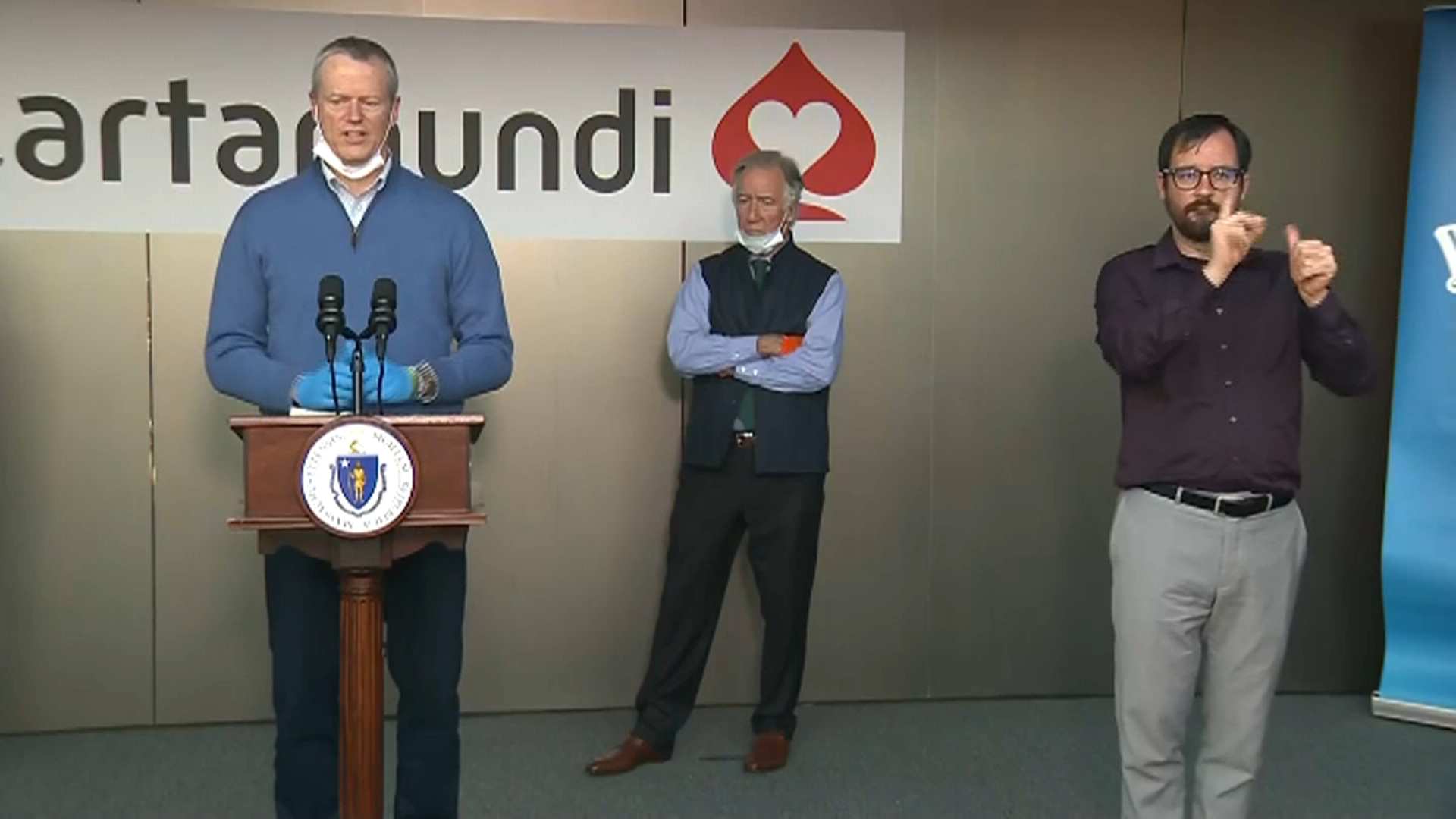Boston restaurants that have been impacted by the coronavirus pandemic now have another way to boost revenue at a time when they are struggling.
Mayor Marty Walsh announced Friday that restaurants in the city will be able to sell some grocery items like paper products and produce via delivery, curbside pickup, and takeout.
“It was a request that we heard from both restaurants and customers,” the mayor said while making the announcement.
The hope is that by waiving the required Retail Food Permit for the sale of uncooked foods, the new temporary policy will improve access to food and essential items for residents, and help ensure social distancing guidelines continue to be upheld.
"This is an unprecedented time for all of us in the City of Boston, and our administration is prioritizing how best to keep our residents safe and healthy, while also supporting our businesses and some of our City's most vulnerable residents," Mayor Walsh said. "By allowing restaurants to also sell grocery and other essential items, we can help address social distancing concerns in grocery stores while supporting restaurants and food businesses during these unprecedented times."
Here is an overview of the updates to small business regulations:
- The City is now allowing restaurants to sell grocery items, including produce, paper products, and more.
- This step will help restaurants and it may cut down on customers’ essential trips outside the home.
- Restaurants that want to start selling groceries must follow strict food safety guidelines.
- They will also need to follow clear guidelines for packaging and labeling foods.
- Restaurants will still be required to limit occupancy to 10 people at any time, and maintain physical distancing, with at least 6 feet in between all staff and customers.
- To get started, restaurants should submit a Health Safety and Operations Plan to the Licensing Board.
Restaurants interested in selling groceries must follow procedures as outlined by the Inspectional Services Department, including making product information available pertaining to safe handling instructions, an ingredient statement, and allergen information required by the Food Allergen Labeling & Consumer Protection Act.
Businesses must also submit an operating plan to the Boston Licensing Board detailing plans of implementing safe handling procedures and how they will comply with ISD guidance.
The Licensing Board will review each plan and issue correspondence allowing the sale of grocery items on a temporary basis given the COVID-19 health emergency.
Restaurants are not permitted to sell grocery items before receiving approval from the Boston Licensing Board.
"Just to be clear. It’s groceries but it’s paper products. It’s meat and some vegetables. You won’t be able to go in there and buy what you would buy at a supermarket," said Mayor Walsh, who took a lot of inspiration from Somerville, the first city in the commonwealth to let restaurants sell groceries.
At Earls Kitchen + Bar in Somerville, sales have been good so far, allowing them to hire back some hourly workers because of the program.
They’re offering four different grocery packs, ranging from meat and fish to vegetables and dairy. They’re also selling items separately, including toilet paper.
”One of our most popular items at our Assembly Row location is an individual roll of toilet paper," said Lynn MacDonald, Earls regional manager.
MacDonald says the popular protein pack includes a variety of meats and costs about $95. She says it will make some money, but that they’re really doing this to help out the community.
”Our goal is just to give back to the community to make sure the have all the resources they need to live their lives right now,” MacDonald said.
The restaurant now plans to do the same thing at its Boston location in the Prudential Center.




